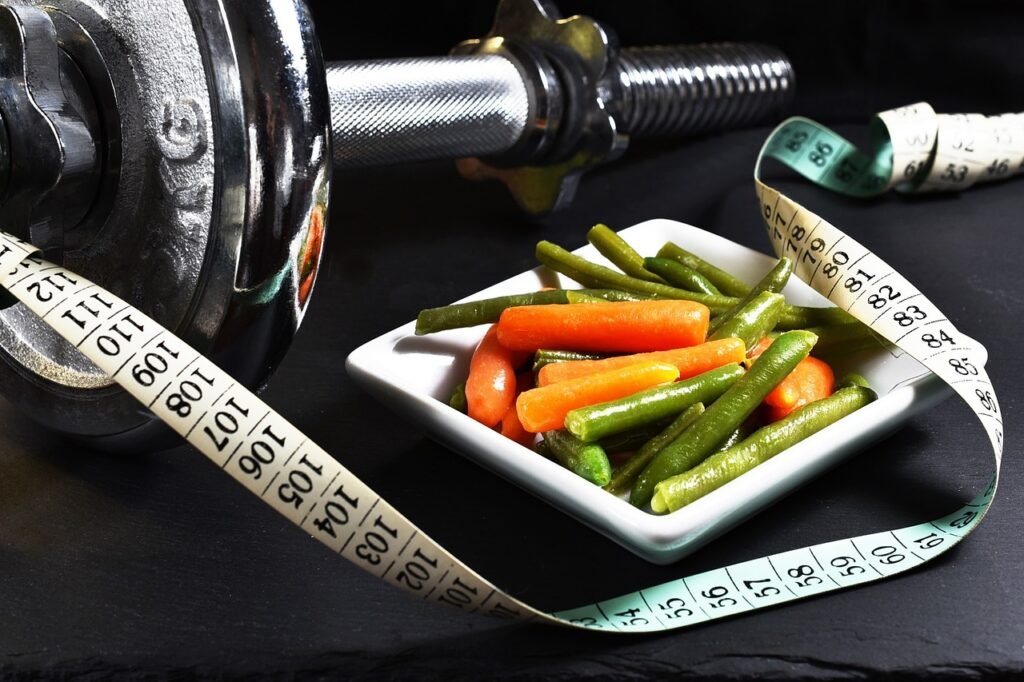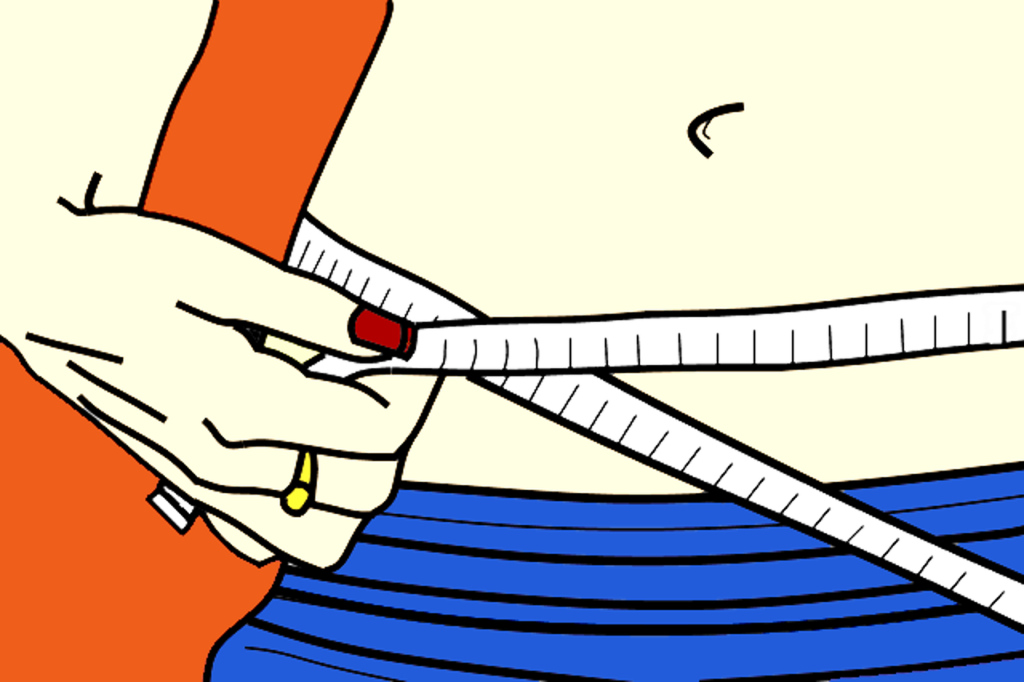How To Lose Weight From 100kg To 70kg?
Are you looking to shed some weight and reach your goal of going from 100kg to 70kg? If so, you’re in the right place! In this article, we will explore some effective strategies and tips that can help you on your weight loss journey. By making small, sustainable changes to your lifestyle and adopting a healthy mindset, you’ll be well on your way to achieving your desired weight. So, let’s get started and discover how you can make this transformation a reality.
Setting Goals for Weight Loss
Determining Your Target Weight
When embarking on a weight loss journey, it is important to have a clear target weight in mind. Take into consideration factors such as your height, body composition, and overall health when determining your target weight. Consulting a healthcare professional or registered dietitian can provide valuable guidance in setting a realistic and healthy goal.
Creating a Realistic Timeline
Weight loss should never be rushed or approached with extreme measures. It is crucial to create a realistic timeline for your weight loss journey. Aim for a gradual and sustainable rate of weight loss, such as losing 0.5 to 1 kilogram (1 to 2 pounds) per week. Remember, slow and steady wins the race!
Establishing Motivation and Commitment
Motivation plays a vital role in achieving weight loss goals. Identify the reasons why you want to lose weight and visualize the positive impact it will have on your life. Whether it’s improving overall health, gaining confidence, or setting a good example for loved ones, find what truly inspires you. Additionally, make a commitment to yourself and hold yourself accountable throughout the entire journey.
Creating a Calorie Deficit
Understanding Calorie Deficit
The concept of a calorie deficit is essential for weight loss. It refers to consuming fewer calories than your body needs to maintain its current weight. By doing so, your body will begin to tap into stored fat as an energy source, leading to weight loss. However, it is crucial to maintain a balanced and nutritious diet while creating a calorie deficit.
Calculating Daily Caloric Needs
To create a calorie deficit, you need to determine your daily caloric needs. Numerous online calculators can help estimate your basal metabolic rate (BMR) and the number of calories required for daily activities. Subtracting a moderate amount, such as 500 to 1000 calories, from this estimate can provide a starting point for your daily caloric intake.
Reducing Caloric Intake
Reducing caloric intake does not mean drastically cutting out food or skipping meals. Instead, focus on making small and sustainable changes to your eating habits. Opt for nutrient-dense foods that are lower in calories but rich in vitamins, minerals, and fiber. This will help you feel satisfied while still being in a calorie deficit.
Choosing Nutrient-Dense Foods
When creating a calorie deficit, it is crucial to choose foods that provide maximum nutritional value. Incorporate a variety of fruits, vegetables, lean proteins, whole grains, and healthy fats into your diet. These foods not only promote weight loss but also support overall health and well-being.

Developing a Balanced Meal Plan
Creating a Balanced Plate
Building a balanced plate is an excellent strategy for weight loss. Aim to fill half of your plate with a colorful array of fruits and vegetables. The remaining half should be divided between lean proteins and whole grains. Adding a small amount of healthy fats, such as avocado or olive oil, can further enhance the nutritional value of your meal.
Eating Regularly and Mindfully
Establishing regular eating patterns is crucial for weight loss. Avoid skipping meals, as it can lead to overeating later in the day. Instead, aim for three balanced meals and incorporate healthy snacks when needed. Additionally, practice mindful eating by paying attention to your body’s hunger and fullness cues, savoring each bite, and avoiding distractions during meals.
Including Lean Proteins
Including lean proteins in your meals can aid in weight loss by promoting satiety and preserving muscle mass. Opt for sources such as skinless poultry, fish, tofu, legumes, and low-fat dairy products. These protein-rich foods not only provide essential nutrients but also help you stay full for longer periods.
Incorporating Fruits and Vegetables
Fruits and vegetables are not only low in calories but also packed with essential vitamins, minerals, and fiber. Aim to incorporate a variety of colorful produce into your meals and snacks. Experiment with different cooking methods, such as roasting or grilling, to enhance the flavors and textures of these nutritious foods.
Emphasizing Whole Grains
Whole grains are a valuable addition to a weight loss meal plan. Unlike refined grains, whole grains retain their fiber and nutrient content. Incorporate foods such as brown rice, quinoa, whole wheat bread, and oatmeal into your diet. These complex carbohydrates provide sustained energy and support digestive health.
Drinking Plenty of Water
Water is an essential component of weight loss and overall health. Proper hydration supports digestion, helps control hunger, and promotes overall well-being. Drink at least 8 glasses of water per day, and consider replacing sugary beverages with water or unsweetened herbal tea. Remember to hydrate before, during, and after physical activity as well.
Engaging in Regular Physical Activity
Choosing the Right Type of Exercise
Engaging in regular physical activity is crucial for weight loss and overall health. Choose activities that you enjoy and that fit your lifestyle. Whether it’s walking, cycling, dancing, swimming, or participating in team sports, find something that brings you joy and keeps you motivated to move.
Starting Slowly and Gradually Increasing Intensity
If you are new to exercise or have been inactive for a while, it is essential to start slowly and gradually increase intensity. Begin with shorter durations of exercise and lower intensity levels, then gradually work your way up. This approach will help prevent injuries and allow your body to adapt to increased physical demands.
Incorporating Cardiovascular Exercises
Cardiovascular exercises, also known as aerobic exercises, are effective for burning calories and improving cardiovascular health. Activities such as brisk walking, jogging, cycling, or dancing can elevate your heart rate and help you achieve your weight loss goals. Aim for at least 150 minutes of moderate-intensity cardio per week, or 75 minutes of vigorous-intensity cardio.
Incorporating Strength Training
Strength training plays a crucial role in weight loss by building lean muscle mass. Including resistance exercises, such as weightlifting or bodyweight exercises, can help increase your metabolic rate and improve body composition. Start with light weights or bodyweight exercises and gradually increase intensity and resistance as you progress.
Embracing Active Lifestyle Habits
In addition to structured exercise, embrace active lifestyle habits throughout your day. Take the stairs instead of the elevator, park farther away from your destination to get some extra steps in, or incorporate walking or standing breaks during prolonged periods of sitting. These small changes can add up and contribute to your weight loss journey.
Finding Enjoyable Activities
To stay motivated and consistent with physical activity, find activities that you genuinely enjoy. Whether it’s hiking, dancing, playing a sport, or taking group fitness classes, choose activities that make you happy. When you find joy in exercise, it becomes easier to incorporate it into your daily routine and maintain a regular fitness regimen.

Tracking Progress and Making Adjustments
Weighing Yourself Regularly
Weighing yourself regularly can be a helpful tool in tracking progress. However, it is important to remember that weight can fluctuate due to various factors such as hydration levels, muscle gain, and hormonal changes. Aim to weigh yourself at the same time of day, wearing similar clothing, and on a consistent basis, such as once a week.
Taking Body Measurements
In addition to weighing yourself, taking body measurements can provide a more comprehensive view of your progress. Measure areas such as your waist, hips, thighs, and arms using a tape measure. As you lose weight and inches, you may notice changes in these measurements, even if the number on the scale doesn’t change significantly.
Keeping a Food and Exercise Journal
Keeping a food and exercise journal can help you stay accountable and identify patterns in your eating and exercise habits. Documenting what you eat, how much you eat, and how you feel before and after meals can shed light on any emotional or mindless eating habits. Additionally, tracking your exercise routines can help you stay on track and monitor progress.
Assessing Your Progress
Regularly assess your progress to determine if your current strategies are effective or if adjustments need to be made. Reflect on how you feel, both physically and mentally, as well as any changes in your body composition or measurements. If you are not seeing the desired progress, it may be time to revisit your calorie intake, exercise routine, or seek professional guidance.
Adjusting Strategies as Needed
Weight loss is not a one-size-fits-all journey, and it is normal to make adjustments along the way. If you hit a plateau or face challenges, consider modifying your calorie intake, exercise routine, or seeking support from a registered dietitian or personal trainer. Remember, flexibility and adaptability are key to long-term success.
Staying Consistent and Focused
Avoiding Fad Diets and Quick Fixes
While it may be tempting to resort to fad diets or quick fixes for rapid weight loss, these approaches are often unsustainable and can be detrimental to your health. Instead, focus on adopting a balanced, nutrient-dense eating plan that promotes long-term success. Sustainable changes take time, but they result in lasting, meaningful weight loss.
Building Sustainable Habits
Weight loss is not just about shedding pounds but also about developing healthy habits for life. Focus on building sustainable habits that you can maintain in the long run. This includes making healthier food choices, engaging in regular physical activity, and prioritizing self-care. By incorporating these habits into your lifestyle, you can achieve and maintain a healthy weight.
Managing Emotional Eating
Emotional eating can sabotage your weight loss efforts. Learn to recognize your triggers and find alternative ways to cope with emotions, such as practicing mindfulness, engaging in a hobby, or seeking support from friends and family. If emotional eating becomes a persistent challenge, consider consulting with a therapist or counselor who can provide guidance and support.
Seeking Support and Accountability
Having support and accountability can significantly impact your weight loss journey. Share your goals with friends, family, or join a weight loss support group. Having someone to talk to, share challenges and successes with, and hold you accountable can provide the encouragement and motivation needed to stay consistent on your path to weight loss.
Rewarding Yourself
Celebrate your achievements along the way to stay motivated and maintain your focus. However, when rewarding yourself, choose non-food-related incentives. Treat yourself to a spa day, buy a new workout outfit, or engage in activities that bring you joy. By celebrating your progress with non-food rewards, you reinforce the positive habits you have developed.

Getting Sufficient Sleep and Managing Stress
Understanding the Importance of Sleep
Getting sufficient sleep is crucial for weight loss and overall health. Lack of sleep can disrupt hormonal balance, increase cravings for unhealthy foods, and impact energy levels and exercise performance. Aim for 7 to 9 hours of quality sleep each night to support your weight loss efforts.
Establishing a Consistent Sleep Schedule
Establishing a consistent sleep schedule can promote a healthy sleep routine. Go to bed and wake up at the same time every day, even on weekends. This helps regulate your body’s internal clock and improve the quality of your sleep. Create a relaxing bedtime routine, such as reading a book or taking a warm bath, to prepare your mind and body for sleep.
Enhancing Sleep Quality
Several strategies can enhance the quality of your sleep. Create a peaceful sleep environment by keeping your bedroom cool, dark, and quiet. Limit exposure to electronic devices and screens before bedtime, as the blue light emitted can interfere with sleep. Opt for calming activities, such as meditation or gentle stretching, to promote relaxation before bed.
Implementing Stress Management Techniques
Managing stress is essential for overall well-being and weight loss. Chronic stress can lead to emotional eating and hinder progress. Incorporate stress management techniques into your daily routine, such as deep breathing exercises, meditation, yoga, or engaging in hobbies that bring you joy. Find what works best for you and make it a priority to manage stress effectively.
Prioritizing Self-Care
Self-care is crucial during the weight loss journey to maintain overall well-being. Take time for yourself to engage in activities that promote relaxation, self-reflection, and self-care. This can include things like taking a walk in nature, practicing mindfulness, getting a massage, or spending quality time with loved ones. Prioritizing self-care will help you stay balanced and focused on your goals.
Avoiding Common Weight Loss Pitfalls
Avoiding Extreme Caloric Restriction
While creating a calorie deficit is necessary for weight loss, extreme caloric restriction can be counterproductive and harmful to your health. Severely cutting calories can lead to nutrient deficiencies, slowed metabolism, and potential muscle loss. Aim to create a modest calorie deficit that supports sustainable weight loss without compromising your overall well-being.
Beware of Hidden Calories
Hidden calories can easily derail your weight loss progress. Be mindful of added sugars, unhealthy fats, and excessive portion sizes in processed foods and beverages. Read nutrition labels, cook at home as often as possible, and choose whole, unprocessed foods to minimize hidden calories in your diet.
Limiting Alcohol Consumption
Alcoholic beverages are often high in calories and provide minimal nutritional value. While moderate alcohol consumption may be permissible, excessive drinking can hinder weight loss efforts. Be mindful of the calories in alcoholic beverages and consider limiting or avoiding alcohol altogether during your weight loss journey.
Avoiding Emotional Eating Triggers
Emotional eating is a common pitfall when trying to lose weight. Be aware of your personal triggers for emotional eating, whether it’s stress, boredom, or certain situations. Find alternative coping mechanisms, such as journaling, talking to a friend, or engaging in a hobby that distracts you from food. Practice mindful eating, paying attention to physical hunger and satiety cues, instead of using food to manage emotions.
Steering Clear of Unrealistic Expectations
Weight loss takes time and effort, and it is important to set realistic expectations. Avoid falling for unrealistic promises or drastic claims that promise rapid weight loss. Aim for sustainable, gradual weight loss that promotes overall health and well-being. Remember, slow and steady wins the race when it comes to lasting weight loss.
Maintaining a Healthy Lifestyle
Adopting a Long-Term Mindset
Weight loss should not be seen as a temporary endeavor, but rather a long-term commitment to a healthy lifestyle. Shift your mindset from seeking quick results to making sustainable changes that will benefit you in the long run. Embrace the idea that health and well-being are ongoing journeys rather than end destinations.
Continuing Healthy Eating Habits
Once you have achieved your weight loss goals, it is crucial to continue practicing healthy eating habits. Maintain a balanced and nutritious diet that includes a variety of foods from all food groups. Strive for moderation, portion control, and mindful eating to maintain your weight loss and support your overall health.
Maintaining Regular Exercise Routine
Weight loss is not the end of your fitness journey. To maintain your weight loss and promote overall health, it is essential to maintain a regular exercise routine. Keep engaging in activities that you enjoy and that challenge your body. Exercise also has numerous benefits beyond weight loss, including reducing the risk of chronic diseases and improving mental well-being.
Being Mindful of Portion Sizes
Even with a balanced diet, portion control plays a crucial role in weight maintenance. Pay attention to portion sizes and practice mindful eating. Use smaller plates, measure your portions, and listen to your body’s hunger and fullness cues. Being mindful of portion sizes helps you maintain a healthy weight while still enjoying the foods you love.
Practicing Moderation
Moderation is key in maintaining a healthy lifestyle. Allow yourself occasional indulgences and enjoy your favorite treats in moderation. It is not about depriving yourself but rather finding a balance that allows you to enjoy your favorite foods while still maintaining a healthy weight. Practice portion control and savor your indulgences mindfully.
Managing Weight Fluctuations
Weight fluctuations are normal and can be influenced by various factors such as hormones, water retention, and changes in muscle mass. Remember that the number on the scale is not the sole indicator of your health or progress. Instead, focus on maintaining healthy habits, feeling good in your body, and prioritizing overall well-being.
Seeking Professional Guidance when Needed
Consulting with a Registered Dietitian
If you find it challenging to navigate the world of weight loss on your own, consider seeking guidance from a registered dietitian. A dietitian can provide personalized advice, create a tailored meal plan, and help you address any specific dietary concerns or health conditions. Their expertise can be invaluable in achieving your weight loss goals in a safe and sustainable manner.
Working with a Personal Trainer
For individuals who want to incorporate a structured exercise routine into their weight loss journey, working with a personal trainer can be beneficial. A trainer can help design a customized exercise program based on your goals, abilities, and preferences. They can also provide guidance on proper form, ensure safety during workouts, and keep you motivated throughout your fitness journey.
Considering Medical Assistance
In some cases, individuals may require medical assistance to achieve their weight loss goals. If you have a significant amount of weight to lose or have underlying health conditions that may impact your weight loss journey, consult with a healthcare professional. They can provide additional medical interventions, such as medication, or refer you to specialized weight loss programs as necessary.
Recognizing when to Seek Help
It is important to recognize when you need additional support and guidance. If you are struggling with disordered eating patterns, extreme weight loss methods, or are experiencing significant mental or emotional challenges during your weight loss journey, seek help from a qualified healthcare professional, therapist, or support group. Remember, your well-being is of utmost importance.
In conclusion, achieving weight loss is a journey that requires goal setting, commitment, and a holistic approach. By determining your target weight, creating a calorie deficit, developing a balanced meal plan, engaging in regular physical activity, tracking progress, managing stress, and seeking professional guidance when needed, you can embark on a successful and sustainable weight loss journey. Remember to be kind to yourself, celebrate your achievements, and prioritize overall well-being as you work towards your weight loss goals.


Pingback: Which Gym Machine Burns Belly Fat